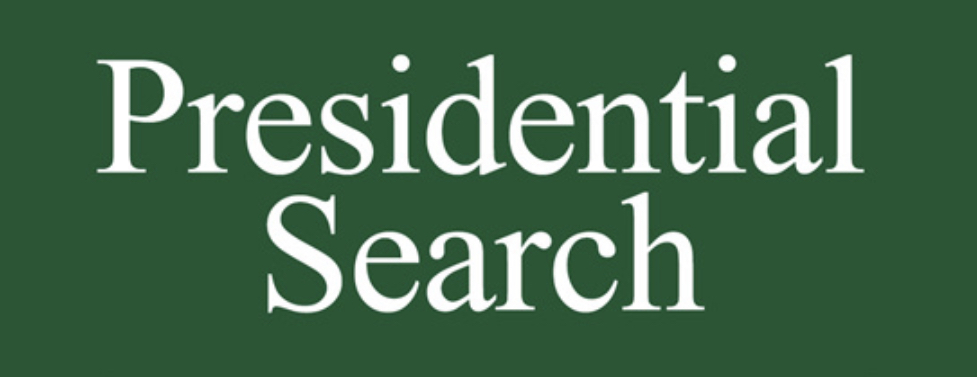
WDRB’s Chris Otts reports that University of Louisville interim President Lori Stewart Gonzalez confirmed on Friday “that she did not advance to final stage of the confidential search process.”
https://www.wdrb.com/in-depth/university-of-louisville-narrows-presiden…
“Meanwhile, the university’s board of trustees is on track with its goal to name the successful candidate by the end of the year, perhaps as soon as November, according to trustee Raymond Burse, chairman of the board’s presidential search committee.
“The committee has narrowed the field to a handful of finalists, according to sources. Burse declined to say how many candidates remain in the mix.
“The university has had a tumultuous succession of interim leaders since the trustees forced out James Ramsey in 2016 over revelations of what they considered excessive and nontransparent compensation involving the university’s affiliated foundation. Ramsey had led since 2002.
“Managed by a third-party consultant, the [current] search is unfolding entirely behind closed doors. “
Perhaps it’s time to rethink the secret public university presidential search model in Kentucky. Certainly, other public universities across the country are.
Secret university presidential searches have been the norm in Kentucky for decades.
These closed door searches have been legally justified under the privacy exception of the open records law (authorizing nondisclosure of “public records containing information of a personal nature where the public disclosure thereof would constitute a clearly unwarranted invasion of personal privacy”) and the “personnel” exception of the open meetings law (authorizing closed session “discussions or hearings which might lead to the appointment, discipline, or dismissal of an individual employee, member, or student”).
https://apps.legislature.ky.gov/law/statutes/statute.aspx?id=51393
https://apps.legislature.ky.gov/law/statutes/statute.aspx?id=52570
The longstanding rationale for secret searches — often conducted by third party consultants/executive search firm at great cost — has been that open university searches narrow the applicant pool by discouraging qualified candidates who will not “allow themselves to face public scrutiny before a selection.” This includes potential candidates who are concerned about retaliation from the universities they currently serve for pursuing employment elsewhere.
https://www.insidehighered.com/news/2019/08/23/faculty-anger-surroundin…
But critics insist that there is no research verifying these claims.
In the midst of the highly controversial appointment of the new president at the University of Florida, former director of the University’s Brechner Center for Freedom of Information, now CNN legal counsel, Frank Lomonte wrote earlier this month:
“There is, in fact, no evidence that universities get better results when they hire presidents without disclosing the names of the candidates, and quite a bit of anecdotal evidence that secrecy is making presidential terms shorter and less successful.”
https://www.palmbeachpost.com/story/opinion/columns/more-voices/2020/02…
On October 28, the Florida Phoenix reported:
“University of Florida’s Faculty Senate voiced its disapproval of the secretive selection process for a new university president, with a vote of ‘no confidence’ on Thursday over the sole finalist — Nebraska’s U.S. Sen. Ben Sasse.”
https://floridaphoenix.com/2022/10/28/in-a-rare-move-uf-faculty-senate-…
In 2019, chief operating officer and professor in the Schar School of Policy and Government at George Mason University Judith Wilde observed, “[Secret] searches go against the most basic tenet of the university: shared governance.” They engender a “lack of trust/support on the part of faculty, staff, students and the larger community.”
“LoMonte said instances like this in which boards leave only one option often make stakeholders feel as though they were left out of the process, and they can sow distrust.
“‘If the community believes that your presidency was foisted on them by a bunch of remote business executives and headhunters, they are going to start off with skepticism and distrust. Surely it’s better to find out early that the person you’ve identified was a mismatch with the campus culture.’”
Closer to home, Kentucky should consider the controversial appointment of Christopher Brown ll as president of Kentucky State University in 2017, his scandal ridden tenure, and his abrupt resignation in 2021.
https://www.chronicle.com/article/presidential-search-has-faculty-membe…
https://www.state-journal.com/education/the-most-terrible-horrible-thin…
KSU is currently engaged in a legislatively directed presidential search that is, if nothing else, ostensibly more open.
https://www.state-journal.com/education/kentucky-state-presidential-sea…
Even the brief tenure of University of Louisville president Neely Bendaputi — who arrived in 2018 and departed in 2021 — raised eyebrows.
“A tenure of less than four years,” Otts notes, “is considered short for a university leader.”
Will a closed presidential search process yield a better outcome at UofL, and a president with “staying power,” this time? Will the ostensibly more open presidential search process at KSU — imposed by state lawmakers and the Council on Postsecondary Education in exchange for a financial bailout — produce a qualified president with the skills required to navigate the difficult waters that lie ahead for the troubled university?
Or is it time to rethink the secret public university search model in Kentucky altogether?



